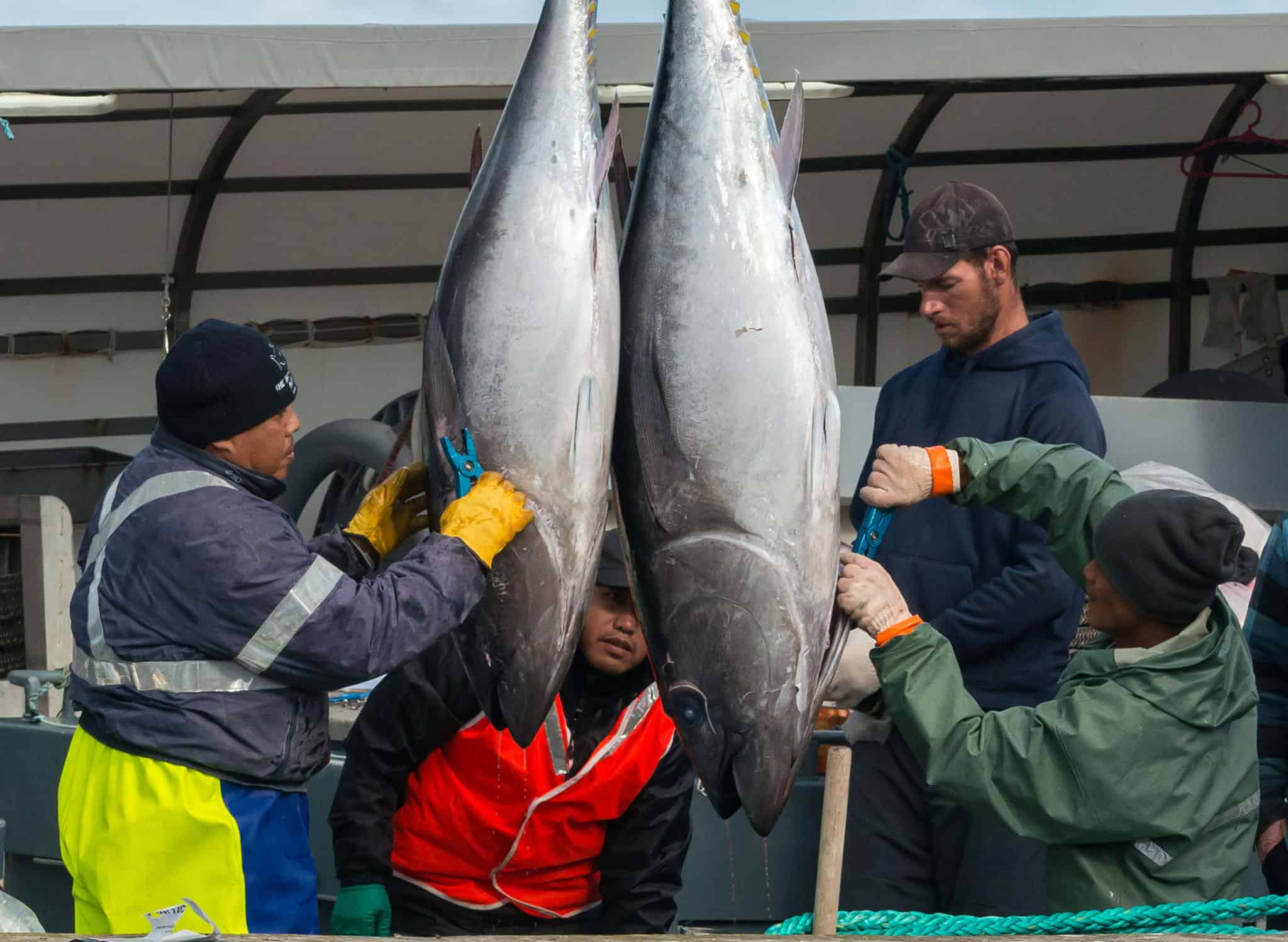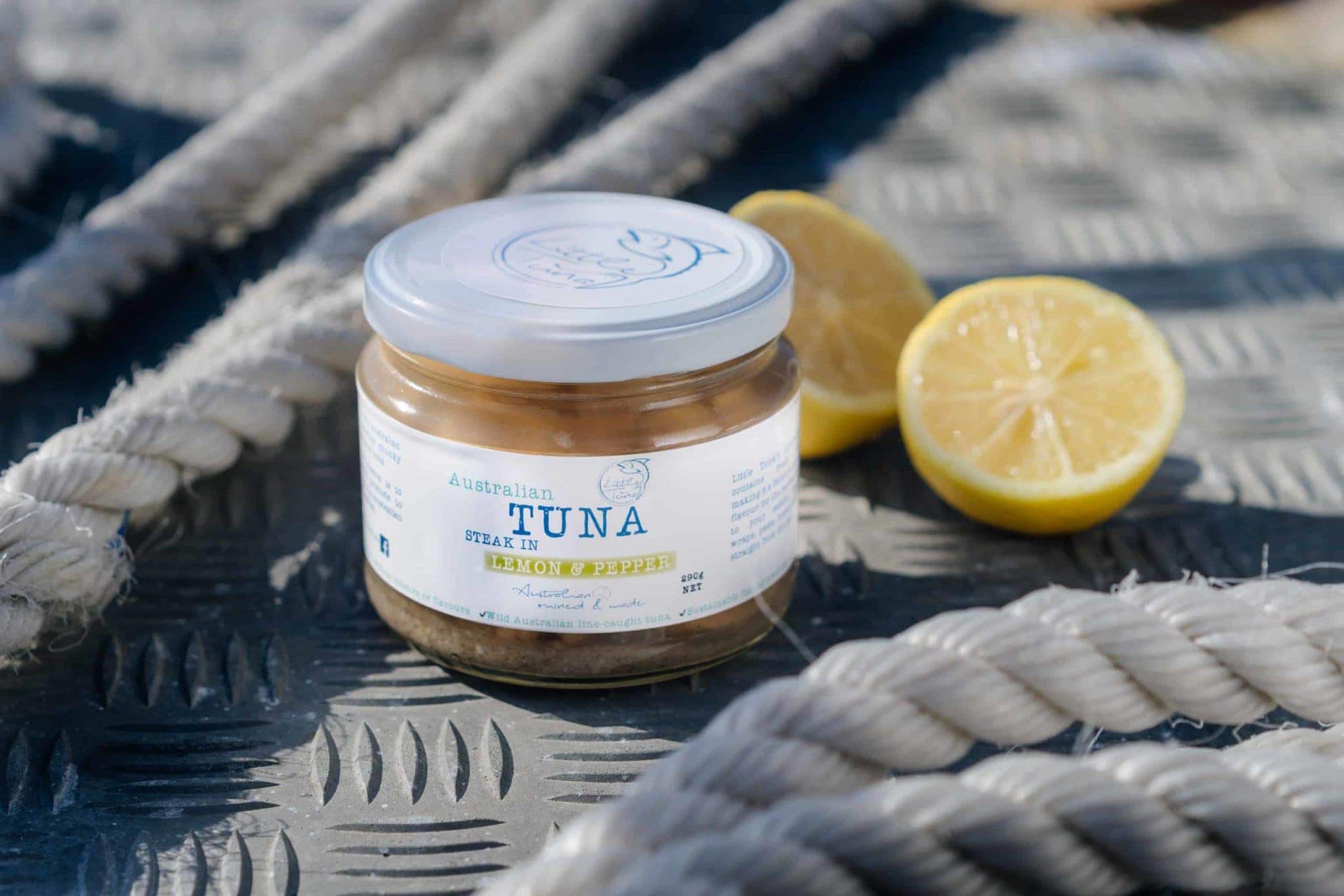The stopping of nearly all international flights and the closure of pubs, clubs and restaurants due to COVID-19 has had a huge impact on Australian tuna producers. Tuna Australia spoke with some members to hear how they’ve been affected.
‘We’ll go backwards’: Lisa Jacobsen, Prime Fish, Gold Coast
Prime Fish has three vessels and an export and distribution business.
“Our tuna business mainly relies on export markets and with the lack of available air freight space we will probably have to stop operating,” explains owner Lisa Jacobsen.
We’ve managed to get flights to Japan this week but as of Friday there will be no more flights.
Tuna operators have traditionally transported their products on passenger airlines. Now, Lisa says, her business is considering using air cargo.
“Airlines are working on trying to find space on cargo planes. But the cost will be six times what it is now so, even if they find the space, it’s not even viable.”

And if her business gets product to Japan, Lisa she’s not sure what the prices will be like. “In Japan, fish is an everyday food, so demand is still good. But everyone in the world is shipping products to Japan, so supply is rising.”
Because “everything is up in the air right now”, Lisa says the business is reassessing all their options.
“We could target albacore then freeze it and ship it in sea containers. We’re waiting to hear if that’s viable because there are problems with unloading product.
“We’re also looking into frozen markets, but that’s not really viable for what we do as it requires specialised technology.
Ours is a fresh fish market.
While the business does sell some of its product locally, it’s a relatively small quantity to what they would normally export.
“We’ll cut up two tuna to fill Gold Coast orders. In comparison, we’re packing 10 tons of tuna to send to Japan this week."
In Lisa’s view, getting access to markets is the key issue.
“It’s difficult to send boats out and use fuel and pay freight costs if we don’t know if we can sell our fish.
We’ll go backwards if we can’t sell our product.
“When the markets start opening up, we need flights to start happening at the same time. When the US comes out of lockdown, we also need to be able to move our product straight away.”
‘Doing OK for now’: Steve Basile, Angelica Fisheries, Ulladulla
Things are rapidly changing, but Steve Basile of Angelica Fisheries says his business is “doing OK” at the moment.
“We’re still moving some fish, even if it’s not as much as we would normally. For instance, our sales to Sydney wholesalers were down by half last week,” he says.
“We sold fish in Japan yesterday for around 1500 yen, which is not too bad given that prices at this time of year are normally 1500–2000 yen per kilogram.
Exporting to Japan is the only thing left.
"The return is ok because our currency exchange rate is pretty good. However, that could change quickly if there is an oversupply to the market.”
If flights to Japan stop and NSW goes into lockdown, Steve says his business will be in “all sorts of trouble.”
“If we have to tie the boats up and can’t catch fish then we can’t pay our bills.
“Our overheads from workers' compensation and insurance, let alone salaries, are through the roof. Seven out of 10 of our workers come from overseas and are on contract—they get paid regardless of if we catch fish.
“We also have to pay $80,000 to $90,000 in management levies soon. So, we’re going to need some help from the government to get through these tough times.”

A number of tuna producers employ overseas workers on their boats.
Steve says his business could probably survive in the short term but would struggle long term.
“If things shut down for three to four weeks, then we could likely handle that as we could fire up after that. But if things go on for six to eight weeks, or even longer, then it won’t be good.”
“I’m really concerned that we’ll lose people from our food-producing sector and it will be a long way back to where we were before COVID-19 wreaked havoc.”
‘Significant increase in sales’: Rowan Lamason, Little Tuna, Cairns
For Rowan Lamason of Little Tuna, the wave of panic buying by Australians has been a plus for his business, which sells high-end canned tuna products using locally-caught fish.
“We’ve seen a significant increase in online sales," he says. "People have been stocking up on supplies because they assume they’ll have to go into lockdown.
We noticed an increase in sales about four weeks ago and we’ve been working flat out since.
While “everything is fine” at this stage, Rowan says his “biggest hurdle” in the future will be accessing fish.
“Vessels may not keep catching fish because they’ve got no access to markets. If boats can’t sell their catch, then it’s not viable.
“The boats catch mixed species and because we use albacore, we only take around 20 percent of the catch. If the boats can’t sell all their catch, then I might have to develop a few more product lines using different fish.”

A Little Tuna product. Photo by Sheridan Lindee.
But Rowan says that scaling up would take time and there are significant risks.
“A lot goes into bringing a product to market. There is product testing, seeing if there’s market demand, doing marketing and sourcing packaging. This can’t be done in a month or two.
“Right now, there’s cheap fish but there won’t always be. The traditional markets will come back in strength and everyone will return to selling their high-quality fish to high-end markets.
“Ramping up and scaling up is one thing, but if we go into a complete lockdown we don’t want to overcapitalize and be left with a whole lot of product.”